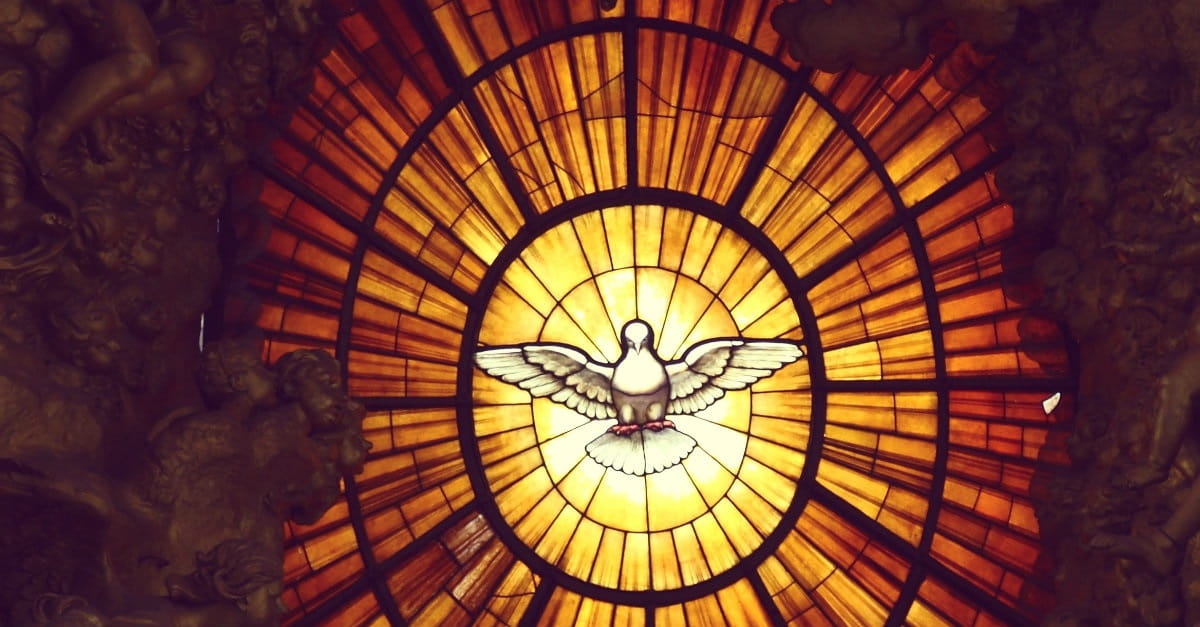|
You may have heard me talk in the past about how Guardini takes the “I-Thou” relationship of God and man, usually associated with Jewish philosopher Martin Buber, and expands it into an “I-Thou-We” relationship. This is presented primarily in his work The Church and the Catholic, but it’s perhaps done more well here in Part 6: Chapter VI of The Lord. The reason I say that is because it’s here that he more clearly ties the intimacy of the Father and Son together in the love of the Third, the Holy Spirit. First, though, let’s take a look at man. Man desires intimacy by his very nature. He desires to be in relationship with his fellow men, and in relationship with God. This is clear enough from observation of man. He continually reaches out and opens himself up, but only to eventually recoil or to have someone recoil from him. How often have you or someone you know spoken about how difficult it is to make new friends? That is another symptom of this desire with a tentative fear. The true intimacy, the true freedom of openness in which the inner self is completely shared and experienced between himself and others, seems unattainable. Even between the most intimately united persons, in the union of marriage in which the two become one flesh, that free expression doesn’t seem to exist. Man continually finds himself at this precipice where he has to protect his “I” (that is, his individuality) out of fear that it might be lost in the other’s “you” or even subsumed into the collective “we.” With God, this is not so. In God we see the Father bearing His only-begotten Son, so beloved that the Son is of the very same essence as the Father. The spoken Word goes forth from the mouth of the Father and returns the same, the two perfectly reflecting one another and perfectly joined together in this bond of love. These two remain two, each one an “I,” but each also completely open and fulfilled in their union with one another. They are literally one life, not a composite that makes up one life, but each sharing completely and wholly in that one life. Nothing they do is not mutual. And between them? “Between them exists something unknown to man that makes possible their existence as two separate Beings yet with one life, one essence unhampered by the limitations of self which protect isolate all other life. Between Creator and Creator everything is open; the closed doors of individuality are non-existent . . . All this means that God is “Spirit”—not Understanding, Logic, Will, but Holy Spirit, Pneuma. It is in him, the Third Person of the Trinity, that Father and Son are powerfully individual, yet one.” -Romano Guardini ("The Lord") It’s the union of the Two with the Third that makes this possible—it is the Holy Spirit which makes such perfect union between individuals possible. In this way, God himself is no longer “I” or even merely that there are three which say “I.” No, God is really and truly a “We.” The Holy Spirit unites each “I” to each other, without destroying their individuality but so perfectly united that they move in the fullness of freedom and unity that we can truly call them a “We.”
And so what of man’s desire? Man is made in the image of God. Naturally, he craves, even needs this relationship in order to truly be fulfilled. And indeed we had that relationship before the Fall, when God walked among us in the Garden. But that’s precisely it: the union that man so desires, the need to become a “we” without losing the “I” is only possible because of the Pneuma—by the Holy Spirit. It is the Holy Spirit who not only perfectly unites Father and Son so they all become a “We,” but also who unites man to Christ, thus making us members of the one Body of Christ and thus forever a “We” but also still an “I.” It is in this Church that we become the “We” we so desire to be. This isn’t to say the Church is the perfect “We” it will become. Certainly not. It remains in a state of becoming. St. Augustine uses the image of two cities, the earthly and the heavenly, and the Church exists simultaneously in them both—continually transformed by the heavenly, yet still remaining in the earthly. The Spirit joins us to this Church, to this Body of Christ, gifting us the grace of faith and love, continually transforming both us and the Church to become more perfect members of this Body. One day this Church will no longer be “becoming,” but will come into her full glory, in which the entire Body is the perfected “We” in the Spirit. This is the ultimate destination of man, and is the hope upon which our faith is built. Unity with Christ, together with our fellow men, through the Holy Spirit and in the presence of the Father who walks among us.
0 Comments
Leave a Reply. |
Series Info
Every day of Lent, I am writing a reflection piece on two chapters of "The Lord" by Romano Guardini. If you'd like to read or follow along, you can find the full calendar of where we're at below, or Click Here for the main landing page. Archives
April 2020
Categories
All
|

 RSS Feed
RSS Feed